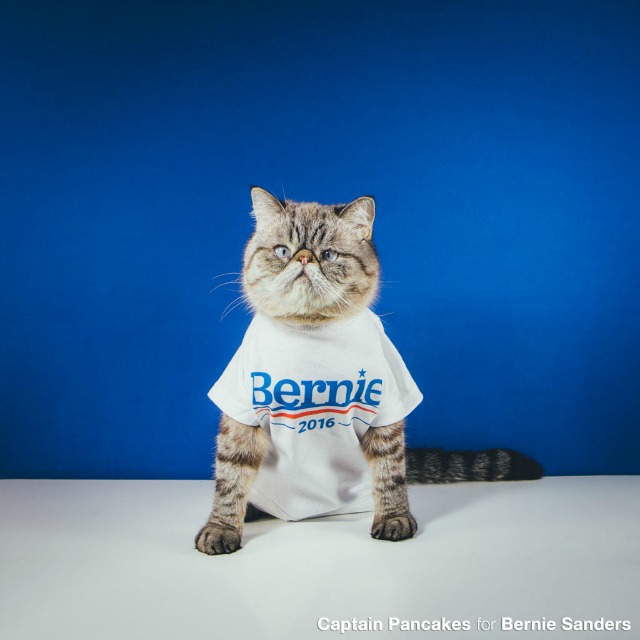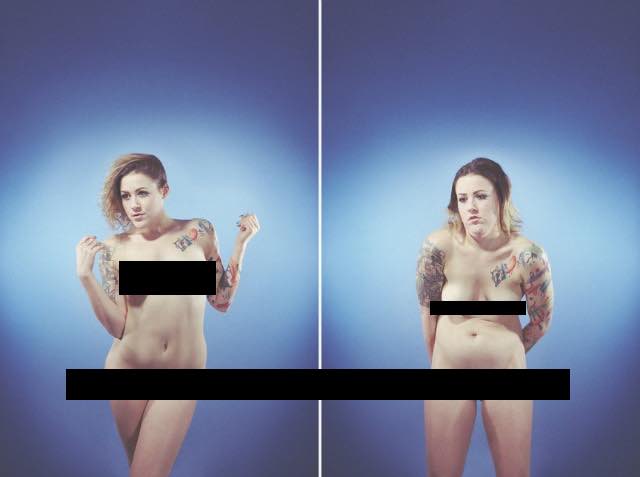Why Was This Acclaimed Chicago Artist Deleted By Facebook? (NSFW)
By Stephen Gossett in News on Sep 21, 2016 2:48PM

The Captain Pancakes Facebook page was also temporarily deleted / Photo: Gracie Hagen
If you don’t know the name Gracie Hagen, there’s a good chance you’re nonetheless familiar with the photographer’s most famous work, “Illusions of the Body.” The series of side-by-side nude portraits (one “attractive,” the other “unattractive”) astutely tackled body-image issues and media perception of sexuality, and it received a slew of national praise, in outlets such as Huffington Post, Juxtapoz, Flavorwire and more.
Her work is pretty much the textbook definition of how artistic nudity does not equate to pornography. Nonetheless, something in the artist’s Facebook account led the company to delete all three of her profiles on Thursday: Hagen’s public-figure profile, her personal account and even her page for Captain Pancakes, her insanely adorable (and also internet-famous) scrunch-faced cat.
Hagen had been flagged before on Facebook, but it never rose to such a degree that her entire presence was erased from the site. She maintains the deletion was unjust. “The guidelines say artistic nudity is allowed,” she said. “By that standard, everything is compliant. Whoever they have monitor flaggings does not uphold the Community Standards.”

"Illusions of the Body" / Photo: Gracie Hagen
Facebook did eventually restore Hagen’s profiles, on Tuesday afternoon, but the artist finds the timing curious: they reappeared only after Chicagoist reached out to Facebook for explanation. Hagen herself did not receive any notice of restoration or apology, and she said she was never able to have a real conversation with anyone at Facebook about her appeal, receiving only multiple boilerplate email responses.
A Facebook spokesperson told Chicagoist in full: “The profile was removed in error and restored as soon as we were able to investigate. Our team processes millions of reports each week, and we sometimes get things wrong. We're very sorry about this mistake.”
Hagen said that social media is an integral element in artists’ careers, and that such drastic measures can be disastrous to their practice. “If you’re not present online, you seem less relevant, less reliable,” she said. “And the nature of the internet now is that no one goes to specific sites—they aggregate or use social media.”
Facebook acknowledges that errors occur, writing in its Standards “our policies can sometimes be more blunt than we would like and restrict content shared for legitimate purposes.” But the overreaction—and the fact that it may have required media intervention to remedy—troubled Hagen. Still, the problem runs deeper, she thinks.
“The baseline in America is that nudity equals pornography and is shameful. Nothing about how I shoot my subjects was sexual in nature; it was to document the body type and the person. It all comes down to the way Americans misperceive bodies.”
In other photographic series, Hagen documents a double mastectomy and reconstruction surgery and takes a de-sexualized look at the humanity of fetishists. Much of her practice contains no nudity at all.
Hagen’s newest project is a collaboration with painter Julia Haw, scheduled to exhibit next year. You can see a new trailer here. Please don’t overreact: it contains nudity.